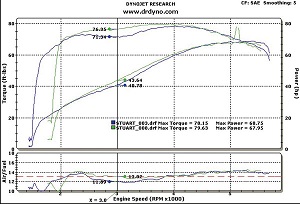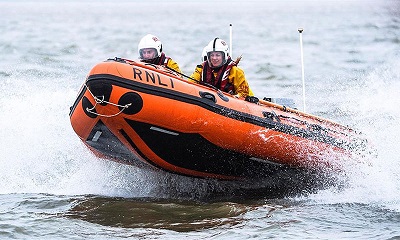Do you know how many pairs of shoes £1000 can buy you!!!! At least two!
You would get on extremely well with my wife.
1. Work out what REALLY needed to be done, then worry about the cost of doing what needed to be done to the engine.
2. Work out the worse case scenario of MIGHT need to be done, and attempt to come to terms with the costs involved.
I think the first thing to do, is to get this out of your mind totally.
It proves that I really LOVE the boat and all that she has to offer, and that I am a total nutter with my head in an almighty bucket of sand... but then we're all boat owners, so I'm sure that doesn't come as any surprise!
Next, love the boat for the moments you have on her, but do not love the boat totally and unconditionally under any circumstances. In boaty terms this "will" cost you a fortune and cause "old man/woman syndrome" causing you to keep her even when she is sitting doing nothing and you do not want to sell her.
Starter and alternator. As mentioned, they're still the originals. Although not the biggest issue if they do break, but it will mean a call to sea start if we are out, and likely a couple of precious boating weekends lost by the time we've sourced another and gotten around to fitting it. Plus, I assume if the starter does go, it'll be when you're just about to leave some far flung marina, meaning you have to pay for a tow back to your home port or pay to store the boat in the marina while you sort things out - either way incurring more expense.
The starter maybe, about £110 without labour to replace, but have you noticed any issues lately?
Alternators can last the life of the boat, not much to go wrong here and as we know they only charge the starter battery and/or accessory batteries, worst case, you have a flat battery somewhere. Usually indicated by a battery warning light on the dash.
Carb rebuild - We had this done three years ago, but this season, when you accelerate hard from a slow speed, the engine bogs down. Accelerating gradually is fine. Is this something to do with the accelerator pump or something like that, and would a carb rebuild sort this? Also, in real terms how hard is this to do?
Before you had the rebuild, did she bog down, did the rebuild stop it or is it only this season?
I think a compression tester is a good idea and will tell you a great deal. A reminder about compression testing though, don't think that the original compression is what you are looking for, however you should be looking for big deviations between the cylinders.
I'm not sure about the oil pump or petrol lift pump. Certainly the petrol pump usually cannot be serviced so the whole thing requires a new one, but these tend not to break easily.



